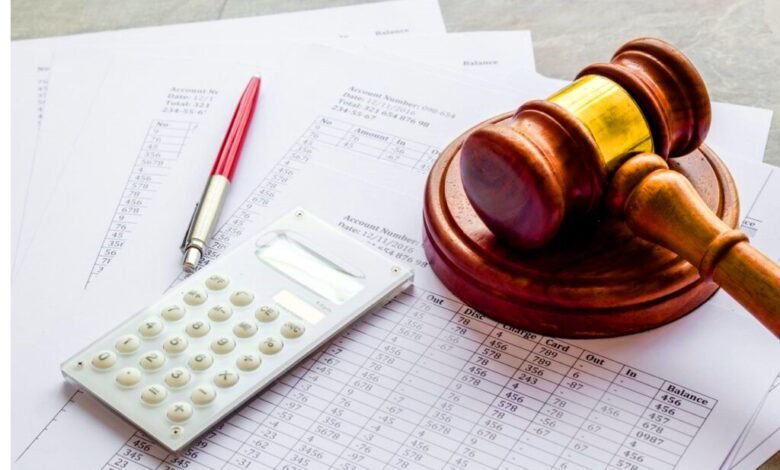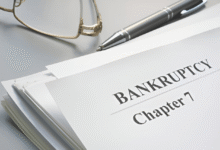Bankruptcy Court Proceedings: What to Expect

Bankruptcy is a legal process that offers individuals and businesses a fresh financial start by addressing overwhelming debt. Navigating the bankruptcy court proceedings can be daunting, but understanding what to expect can alleviate some of the stress associated with the process.
Types of Bankruptcy
Chapter 7 Bankruptcy
Chapter 7 bankruptcy involves the liquidation of assets to discharge debts. Understanding the eligibility criteria and implications is vital for those considering this option.
Chapter 13 Bankruptcy
Chapter 13 bankruptcy allows for a reorganization of debts through a court-approved repayment plan. Learn about the key differences between Chapter 7 and Chapter 13 and who qualifies for each.
Initiating Bankruptcy Proceedings
Filing a bankruptcy petition is the first step. This section covers the necessary documentation, court fees, and other costs associated with initiating the process.
Automatic Stay
Explore how the automatic stay provides debtors with immediate relief by halting creditor actions, and providing a protective shield during the proceedings.
Meeting of Creditors (341 Meeting)
Understanding the purpose and procedure of the 341 Meeting is essential. Debtors should prepare for questions from the trustee and creditors during this crucial step.
Trustee’s Role
Learn about the trustee’s responsibilities, powers, and their role as an intermediary between debtors and creditors throughout the proceedings.
Creditors’ Involvement
This section delves into the proof of claims process and potential objections creditors may raise during the proceedings.
The Confirmation Hearing
Get insights into the confirmation hearing, where the court reviews and approves the proposed repayment plans in Chapter 13 cases.
Repayment Plans in Chapter 13
Discover how debtors structure repayment plans and the importance of adhering to court-approved plans to complete Chapter 13 bankruptcy.
Read More: Bankruptcy and Retirement: Planning for the Future
Liquidation in Chapter 7
Chapter 7 bankruptcy, often referred to as “liquidation bankruptcy,” is a legal process designed to provide individuals and businesses with a fresh financial start by liquidating non-exempt assets to repay creditors. This section will delve into the details of the liquidation process, its implications, and what individuals can expect when filing for Chapter 7 bankruptcy.
Filing for Chapter 7 Bankruptcy
Before diving into the liquidation process, individuals must initiate the bankruptcy proceedings by filing a Chapter 7 petition. This involves providing detailed financial information, including assets, liabilities, income, and expenses. Once filed, an automatic stay is triggered, temporarily halting creditors from pursuing collection activities.
Appointment of a Trustee
In a Chapter 7 bankruptcy case, a trustee is appointed to oversee the liquidation process. The trustee is a neutral third party appointed by the court to ensure the fair treatment of both debtors and creditors. Their primary responsibility is to review the debtor’s financial information and identify non-exempt assets that can be sold to repay creditors.
Identification of Non-Exempt Assets
Not all assets are subject to liquidation. Chapter 7 bankruptcy allows debtors to claim certain exemptions, protecting specific assets from being sold to repay debts. Exemptions vary by state, and understanding the applicable exemptions is crucial. Common exemptions include a portion of the equity in a primary residence, personal belongings, and tools of the trade.
Valuation of Assets
The trustee will conduct a thorough evaluation of the debtor’s non-exempt assets to determine their fair market value. This valuation is a critical step in the liquidation process, as it influences the amount that can be distributed to creditors.
Sale of Non-Exempt Assets
Once non-exempt assets are identified and valued, the trustee takes control of these assets and proceeds to sell them. The sale can take various forms, such as auctions or private sales. The generated funds are then used to repay creditors in a specific order of priority established by bankruptcy laws.
Creditor Repayment
The funds obtained from the sale of non-exempt assets are distributed among creditors based on a predetermined hierarchy. Secured creditors, such as mortgage holders or car lenders, are typically prioritized. Unsecured creditors receive a share of the remaining funds, although they may not receive full repayment.
Discharge of Remaining Debts
After the liquidation process is completed, any remaining eligible unsecured debts are discharged. This means that the debtor is no longer legally obligated to repay these debts. However, certain debts, such as student loans and certain tax obligations, may not be dischargeable.
Financial Fresh Start
The ultimate goal of Chapter 7 bankruptcy is to provide individuals with a financial fresh start. While the process involves liquidating assets, the discharge of debts allows debtors to move forward without the burden of overwhelming financial obligations.
Read More: Bankruptcy and Auto Loans: Navigating Vehicle Repossession
Conclusion
In conclusion, while bankruptcy court proceedings may seem overwhelming, understanding the process empowers individuals and businesses to make informed decisions. Seeking professional advice is crucial for navigating these complex legal waters successfully.
FAQs(Bankruptcy Court Proceedings: What to Expect)
Is bankruptcy the only solution for overwhelming debt?
Bankruptcy is one option, but alternatives such as debt consolidation or negotiation exist. Consult with a financial advisor to explore all options.
How long does the bankruptcy process typically take?
The duration varies based on the type of bankruptcy. Chapter 7 is typically faster than Chapter 13, which involves a repayment plan spanning several years.
Can all debts be discharged through bankruptcy?
While many debts can be discharged, certain types, such as student loans and child support, may not be eligible for discharge.
How does bankruptcy impact credit scores?
Bankruptcy can hurt credit scores, but with responsible financial management, individuals can rebuild their credit over time.
Is it necessary to hire an attorney for bankruptcy proceedings?
While not required, hiring an experienced bankruptcy attorney can greatly enhance the chances of a successful outcome and ensure all legal requirements are met.











